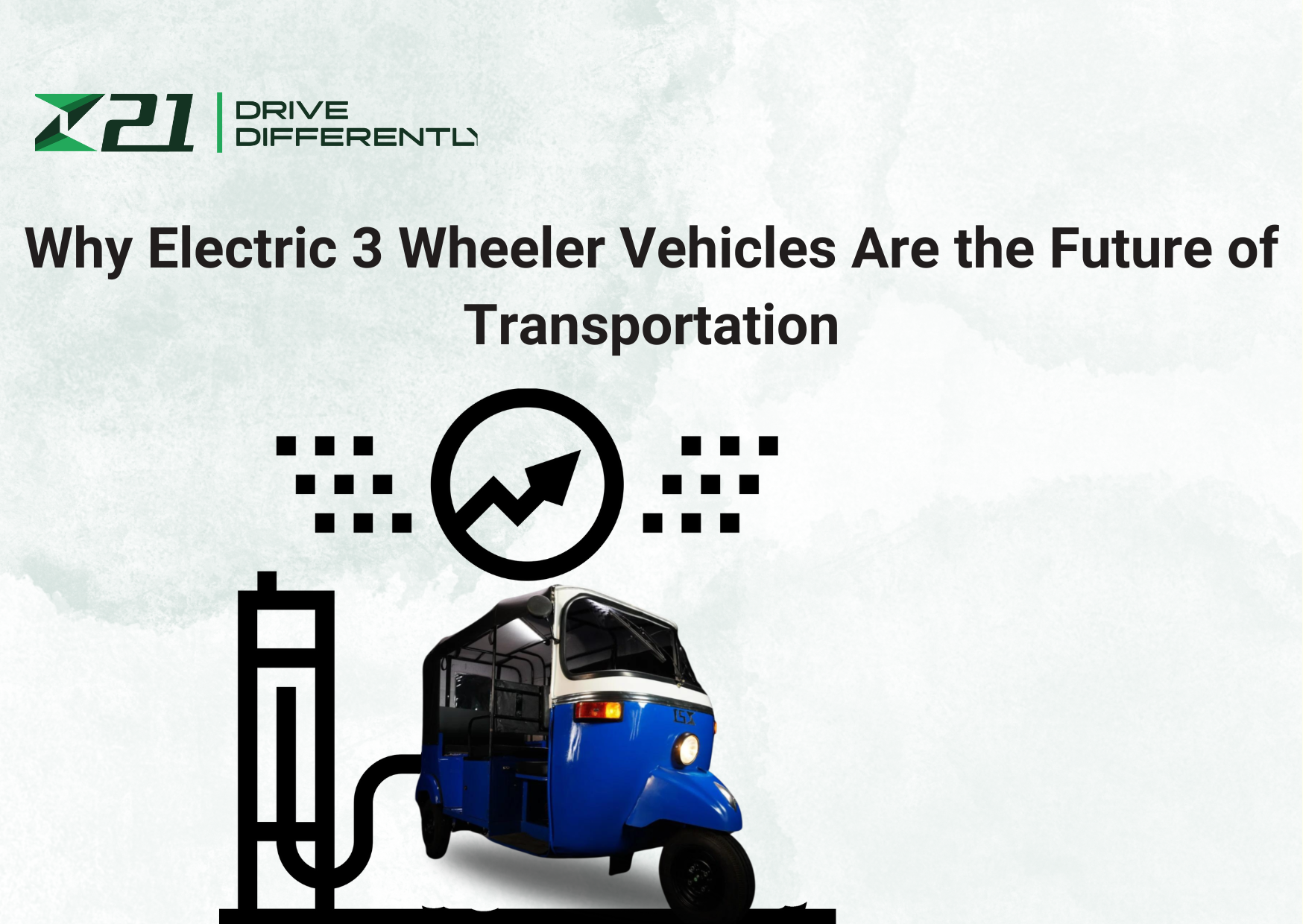The transport sector is currently experiencing a major revolution, the spearhead of which is electric vehicles (EVs). In the set of existing EVs, electric three-wheelers can be viewed as one of the most promising solutions for urban transport. This article focuses on why the future of electric 3-wheelers is so bright and why these vehicles are set to redefine transportation in the years to come.
Sustainability at Its Core
However, the high environmental impact is one of the main reasons that the future of electric 3-wheelers seems rather promising. These vehicles emit no pollutants into the atmosphere, and therefore are essential in the fight against air borne pollution and global warming. Thus, electric three-wheelers will become vital for improving the air quality of megacities as long as more and more cities adopt sustainable transportation initiatives.
Cost-Effective Operation
Three-wheelers’ electric type is not only environmentally friendly but is also favorable in financial terms. Here’s how they benefit operators and businesses:
- Lower Fuel Costs: Electrical energy is cheaper than fuel costs for normal petrol or diesel cars and hence its usage reduces fuel costs considerably.
- Reduced Maintenance Expenses: Electric three-wheelers have fewer parts to move compared to gasoline three-wheelers, and hence have low maintenance costs.
This cost-effectiveness makes them popular for use by individuals as well as companies hence guaranteeing the future of electric 3-wheelers financially.
Financial Assistance from the Government
Currently Governments around the world including the Indian government are coming up with policies and incentives for the use of electric vehicles. These incentives ranging from subsidies to tax exemptions to investment in charging infrastructure are fast moving the country from fossil fuel-based three-wheelers to electric three-wheelers.
- FAME (Faster Adoption and Manufacturing of Hybrid and Electric Vehicles) in India offers incentives for the buyers.
- Moreover, state-level incentives also contribute to the reduction of the initial cost of these vehicles, which increases its availability.
This kind of support is a clear sign that emphasis is gradually shifting to the future of electric 3-wheelers as a key solution to sustainable transportation.
Versatility in Applications
Electric three-wheelers are incredibly versatile, catering to diverse needs:
- Passenger Transport: A low cost and effective solution to the last mile connectivity problem.
- Goods Delivery: Suits small scale operations and delivery services.
This characteristic makes them fit the needs of different industries, which makes them more attractive and guarantees they will be part of the future transport systems.
Technological Advancements
The constant developments in the EV sector are only helping to cement the future of electric 3-wheelers. Modern electric three-wheelers boast:
- Improved Battery Technology: A longer battery life and reduced time needed to charge the battery.
- Smart Features: gps navigation, fleet and other tracking, and other connectedness solutions.
- Better Performance: Greater coverage and better capability of carrying loads.
Such developments enhance the performance of electric three-wheelers and thus increase their demand across the world.
Urban Mobility Solution
Some of the problems that cities experience with growth in urban development include traffic jams and inadequate parking lots. Electric three-wheelers therefore present a small, effective, and eco-friendly approach to these problems and cannot therefore be dismissed in urban landscapes.
Energy Independence
Electric three-wheelers help the country to save energy and at the same time cut the proportion of imported fuel. Hence the use of renewable energy to charge these vehicles can go a long way in increasing energy security as well as lowering greenhouse gas emissions.
Challenges and Solutions
While the future of electric 3-wheelers is bright, certain challenges remain:
- Charging Infrastructure: It is therefore important for the charging network to be extended to as many areas as possible.
- Initial Costs: While electric three-wheelers are cheaper to operate in the long run, there’s an initial capital to consider. This problem can be solved by government subsidies and financing options.
- Battery Recycling: A recycling system shall be established in order to help eradicate these problems that arise from battery disposal to the environment.
Why It’s About Time to Invest in Electric 3-Wheelers
The shift from gasoline run three-wheelers to electric operated three-wheelers is not a fad; it is the need of the hour because of environmental consciousness, financial viability, and technological innovation. Such investors in these vehicles today are set to gain big from being early entrepreneurs of what is now shaping up to be a transportation revolution.
Looking at the future of electric 3-wheelers, it is definitely green, affordable and full of advancements. With cities and businesses partnering with global goals for clean mobility, electric three-wheelers are set to become part of the solution. This change starts with Zero21 autos, an electric vehicle company, to make the world a better place and to have a smarter future.


